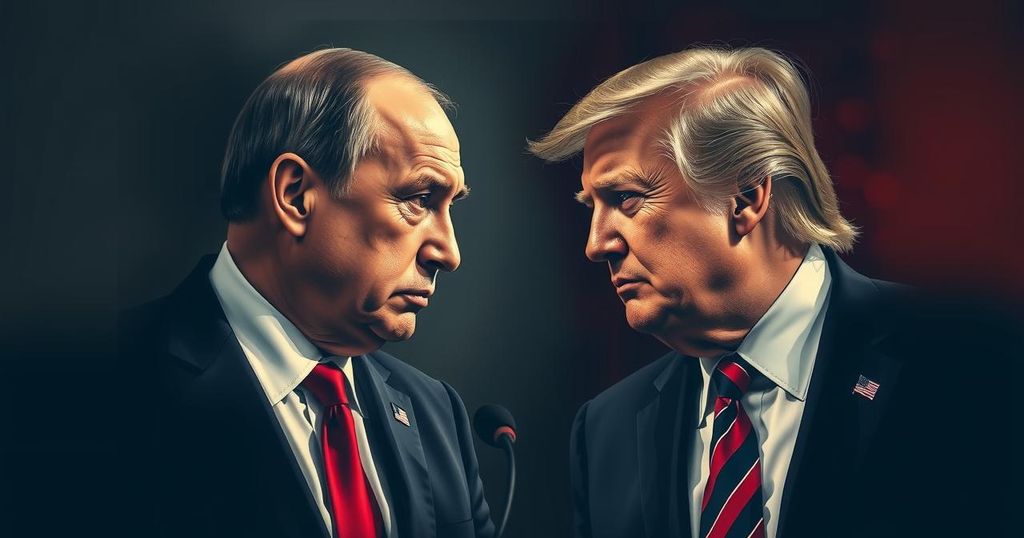World news
ASIA, BENJAMIN NETANYAHU, DONALD TRUMP, DONBAS, ENERGY INFRASTRUCTURE, EUROPE, EUROPE/ASIA, INTERNATIONAL RELATIONS, ISRAEL, KO, KOMMERSANT, KREMLIN, MILITARY, MOSCOW, NATO, PALESTINIAN AUTHORITY, RUSSIA, RUSSIA-UKRAINE WAR, UKRAINE, US PRESIDENTIAL RACE, VLADIMIR, VLADIMIR PUTIN, VOL, WAR
Fatima Khan
0 Comments
Putin’s Maneuvering of Trump Following Electoral Victory
Russian President Vladimir Putin is appearing to manipulate Donald Trump following his electoral victory. Delayed congratulations and potential blackmail implications have surfaced. Trump’s foreign policy aims to realign relations with Russia, but interpretations of Putin’s intentions could complicate that agenda. Notably, Trump’s cabinet nominees also reflect a willingness to prioritize relations with Russia over support for Ukraine.
In the wake of Donald Trump’s recent electoral victory, Russian President Vladimir Putin appears to be exerting influence over the incoming president. Trump received delayed congratulations from Putin, which left him awaiting a call while other world leaders promptly reached out to him. This lack of communication initiated suspicion about their relationship, further complicated by a Kremlin denial regarding Trump’s assertion of discussing Ukraine during their supposed call. As tensions rise in Ukraine, Putin may be unyielding to Trump’s previous request to de-escalate the conflict, highlighting the complexities of their interaction based on national interests rather than personal ties. Recently, Nikolai Patrushev, Russia’s intelligence chief, remarked that Trump owes obligations to the forces that helped him achieve electoral success, which could be perceived as a veiled threat of blackmail. This assertion has raised questions about the nature of Trump’s relationship with Russia and the implications for American democracy, especially given the history of misinformation campaigns during the election. Trump’s foreign policy has consistently indicated a desire for closer relations with Russia, often dismissive of alliances and military pledges towards Ukraine. His cabinet selections reflect an alignment with his views, as nominees tend to advocate for a similar approach towards Russia and a focus on countering China. In light of these dynamics, it remains to be seen how Trump’s stance may change once he comprehends the true nature of his relationship with Putin as it pertains to Russia’s strategic interests.
The backdrop of this analysis lies in the complex relationship between Russia and the United States, particularly during Trump’s presidency. Historically, Russian interference in American elections has raised concerns regarding democratic integrity. Trump’s previous aspirations for rapprochement with Russia, coupled with the charges of collusion during his 2016 campaign, have generated significant scrutiny. As tensions with Ukraine escalated, understanding the implications of Putin’s potential manipulation of Trump is essential to assess future U.S. foreign policy directions.
In summary, Vladimir Putin’s attempts to manipulate Trump following the latter’s electoral victory reflect a broader strategy to influence American democracy and internal politics. The Kremlin’s pointed remarks and public denials concerning their communications suggest a complex chess game between Trump and Putin, where personal admiration may clash with geopolitical necessities. Observing how this relationship evolves will be crucial for understanding future U.S.-Russia relations and implications for global stability.
Original Source: slate.com




Post Comment